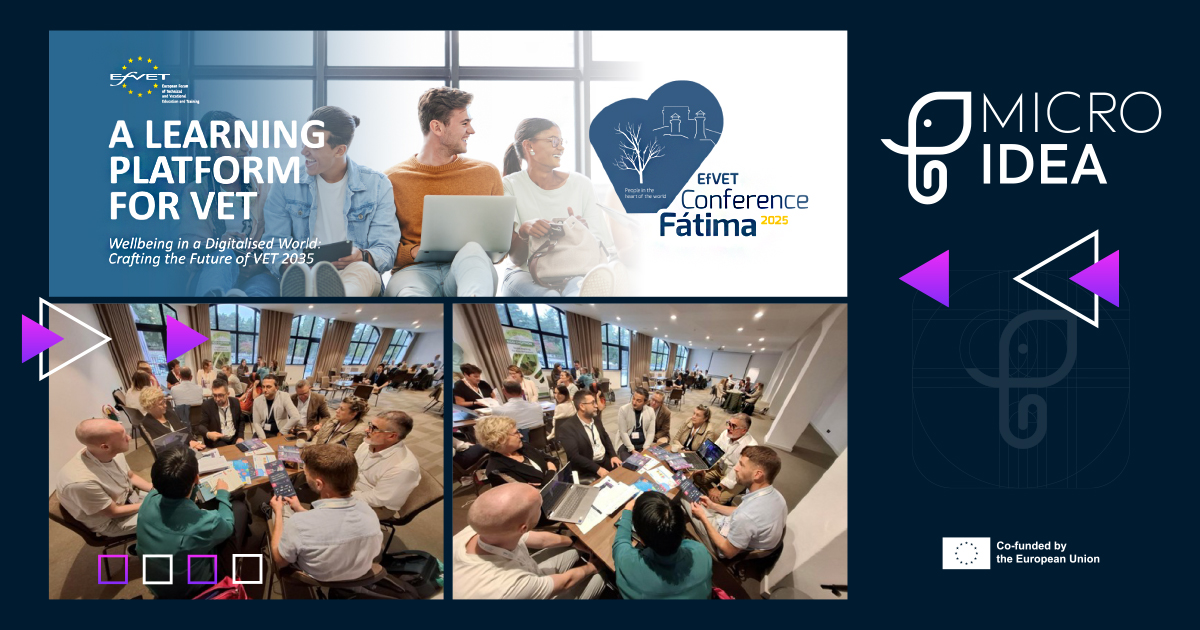The fourth Transnational Project Meeting of the MICROIDEA project took place from 12 to 14 November 2025 in Reus, Spain, hosted by DomSpain and the Reus Chamber of Commerce. The three-day event brought together all project partners from Spain, Greece, Cyprus, Austria, and Italy to discuss the project’s progress, evaluate results, and prepare for the next crucial implementation phase — the pilot interventions.
The first day focused on reviewing the progress of pilot implementation in each country. The session opened with welcoming remarks from DomSpain and the Reus Chamber of Commerce, followed by presentations from the piloting leaders and TÜV Austria Hellas, who introduced key elements of the ISO/IEC 17024 certification framework for micro-credentials.
The University of the Peloponnese (DM Lab) presented a live IT Tools Demo, showcasing how the system collects and analyses job market data to generate AI-driven career and training recommendations for jobseekers and trainers. Partners were invited to test the platform and provide structured feedback before the launch of the piloting phase.
Later, DomSpain led a discussion on the next steps for the pilot interventions, followed by IARP presenting the progress on the PESTLE analysis comparing Spain, Greece, and Cyprus. The analysis identified political, economic, social, and technological factors affecting the adoption of micro-credentials in the hospitality and tourism sectors.
p-consulting.gr then shared updates on dissemination results, highlighting that the project website had reached 7,947 views and over 2,000 users, with active engagement across Facebook, LinkedIn, Instagram, and YouTube.
The day concluded with a presentation of results from the EfVET Conference, discussions on the next meeting in Sri Lanka, and managerial updates from UoP and ACRONYM.
The second day was dedicated to the MICROIDEA Conference, held at the Reus Chamber of Commerce. The event gathered stakeholders from VET institutions, chambers of commerce, and the business sector for a series of plenary sessions and roundtables.
Partners presented the project’s main outcomes, including:
- The methodology for the development of micro-credentials aligned with ISO/IEC 17024 standards.
- The pilot framework and the inclusion strategies for low-qualified individuals, migrants, and NEETs.
- The impact of digital tools and AI systems in identifying labour market needs and supporting personalized upskilling pathways.
Interactive discussions addressed challenges in the recognition of skills and cross-border certification, as well as policy directions for enhancing employability through trusted, portable micro-credentials.
The final day included a study visit to Espai Boule Restauració, where participants attended a master class and brunch hosted by local trainers and entrepreneurs. The visit highlighted how training centres can integrate micro-credential methodologies within practical learning environments.
As the project moves into 2026, partners will implement the pilot training and certification phase across Spain, Greece, and Cyprus. The piloting will validate the curriculum, evaluate the micro-credentialing process, and ensure inclusion of diverse learners — from low-qualified workers to migrants seeking recognition of their skills.
The MICROIDEA project, continues to build a comprehensive European approach for skill recognition and certification in the VET sector, combining innovation, trust, and inclusivity.



















